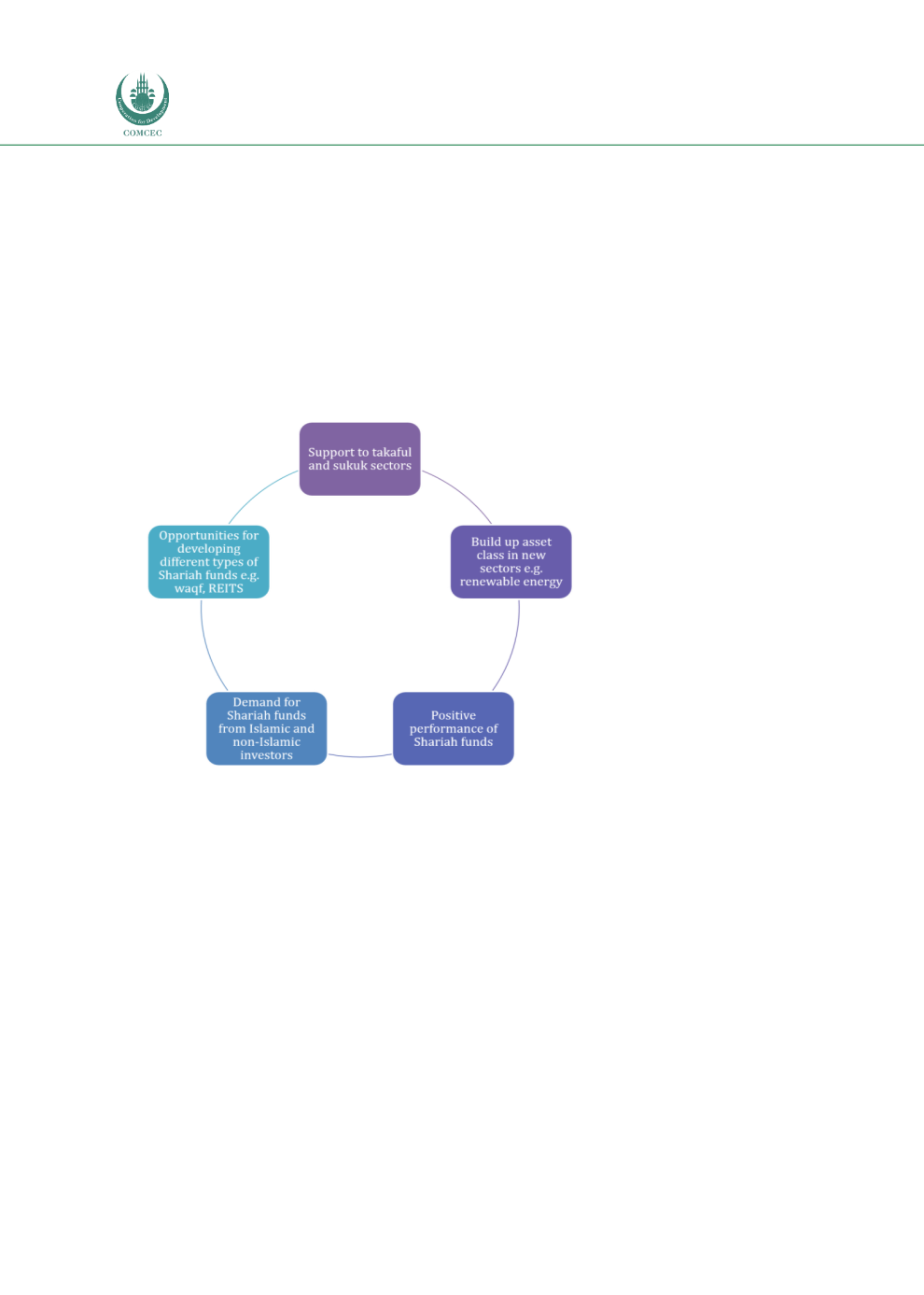

Islamic Fund Management
132
Furthermore, opportunities exist for the development of a whole range of Islamic funds, from
Islamic UCITS to Islamic REITs and from commodity funds to
waqf
funds. There are already
several UCITS in Morocco, which have gained appeal among international investors because
they provide a certain level of investor protection and meet international regulatory
standards. Developing Islamic UCITS can attract funds from international Islamic investors. On
the other hand, currency convertibility and capital repatriation are likely issues, as with the
other countries in the case studies. There is also the potential for the development of
waqf
funds by encouraging public-private-philanthropic partnerships to develop
waqf
assets and
invest in social objectives.
Figure 4.18summarises some of the investment and commercial
considerations for the development of the Islamic fund management sector in Morocco.
Figure 4.18: Investment and Commercial Considerations in Developing Morocco’s Islamic
Funds
Source: ISRA
Morocco is currently working on the launch of REITs. The legal structure of REITs in Morocco
is based on the Organismes de placement collectif en immobilier (OPCI) (or collective
undertaking for real estate investment), the laws of which were passed in August 2016. The
authorities are currently working on regulations/circulars, which are expected to be released
in 2018 following the approval of the Ministry of Economy and Finance. Investments in real
estate are one of the important asset classes in the Islamic finance industry; the OPCI Law is a
significant opportunity to align Shariah compliance with investments in real estate. They will
allow financial institutions in the participation finance sector to mobilise new resources by
transferring their real assets to REITs.
The OPCI Law allows REITs to issue sukuk, shares and other securities. A Shariah-compliant
REIT modelled on the
ijarah
contract only invests in real estate meet Shariah requirements
(representing at least 60% of investments), limits the extent of debt, avoids speculative
activities and specific Shariah non-compliant sectors. It is expected that REITs units can be
sold for as low as 100 dirhams so that it is accessible to retail investors and generate annual
returns of 6%-7%. REITs are expected to have a potential AuM of at least 200 billion dirhams,
according to the Moroccan Ministry of Economy and Finance.
















